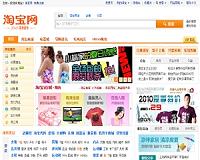| . |  |
. |
Beijing (UPI) Jun 2, 2010 China has proposed further mining restrictions on rare earth minerals, elements that are essential for green technologies. The move would increase China's monopoly on the elements and comes just six months after China cut its target output from rare earth mines by 8.1 percent for 2010 and imposed a moratorium on all new mining licenses until June 30, 2011. China produces 97 percent of the world's supply of rare earth elements, although it has only about 53 percent of the world's rare earth deposits. A draft proposal on mining rights for the elements was submitted this week to China's State Council. "Once approved, the Ministry of Land and Resources will issue licenses and start allocating the resources to those companies," an unnamed official told China Daily newspaper. "Private enterprises can only collaborate with the selected firms through shareholding." Demand for the 17 rare earth minerals has tripled in the last decade to 120,000 tons. The elements are indispensable to a range of green energy and high-tech components such as wind turbines, low-energy light bulbs, batteries for hybrid and electric cars, lasers, fiber-optic cables and cell phones. Each Toyota Prius, for example, uses 25 pounds of rare earth elements. The elements also used for military applications, such as missiles. James Bacchus, the chairman of the World Trade Organization's appellate body, wrote in The Wall Street Journal last month that China was "hoarding rare elements and other raw materials." But He Weiwen, managing director of the China Society for World Trade Organization Studies told China Daily, "WTO rules stipulate that its members can take measures to protect their raw materials from being exhausted and China's measures are in line with them." China maintains that the overhaul of its rare earth mining sector is aimed at conserving reserves following years of exploitation that have taken a toll on the country's environment. Despite soaring demand, the minerals' price increased by only a little more than 20 percent from 1979, to an average of $8,500 per ton in 2009. "We want a higher price on our rare earth minerals," said Zhang Anwen, deputy secretary general of the Chinese Society of Rare Earths, a government-affiliated research organization in Beijing, The New York Times reports. "Foreign buyers should more or less share our costs, including the high cost of reducing environmental pollution." Zhang said China's latest proposal is critical and will benefit the industry.
earlier related report "Certain aspects of China's legislation and the regulatory process remain complex and unclear," said Turkish ambassador Bozkurt Aran, who chaired the two-day WTO trade policy review on China. "Members remained concerned over certain aspects of China's export regime, notably restrictions, licensing, quotas, export taxes and partial VAT rebates," he said. On the first day of the review, the head of the European Union delegation John Clarke said that "even though China reiterates its firm commitment to continued opening up and reform -- we find the word reform almost about 30 times in China's government report -- we believe this does not duly characterise the current situation in China. "In fact, our companies have reported a worsening of the business climate." In an opening statement made at the review, Chinese Vice-Minister for Commerce Yi Xiaozhun did not tackle the criticisms head-on and reiterated the country's commitment to opening up its market. "We firmly believe that opening-up will generate unlimited vitality for trade as well as dynamism for economic growth. Under no circumstances will China change its opening-up policy," he said, according to a statement circulated by the Chinese delegation.
Share This Article With Planet Earth
Related Links Global Trade News
 China, Japan launch world's biggest online marketplace
China, Japan launch world's biggest online marketplaceTokyo (AFP) June 1, 2010 China's largest retail website Taobao and Yahoo! Japan launched a joint service Tuesday in a deal expected to create the world's biggest online marketplace by harnessing Asia's surging ranks of e-consumers. The service is expected to dwarf US rival eBay in terms of users and products on offer, attracting 250 million customers and offering 450 million products. "This marks the birth of th ... read more |
|
| The content herein, unless otherwise known to be public domain, are Copyright 1995-2010 - SpaceDaily. AFP and UPI Wire Stories are copyright Agence France-Presse and United Press International. ESA Portal Reports are copyright European Space Agency. All NASA sourced material is public domain. Additional copyrights may apply in whole or part to other bona fide parties. Advertising does not imply endorsement,agreement or approval of any opinions, statements or information provided by SpaceDaily on any Web page published or hosted by SpaceDaily. Privacy Statement |